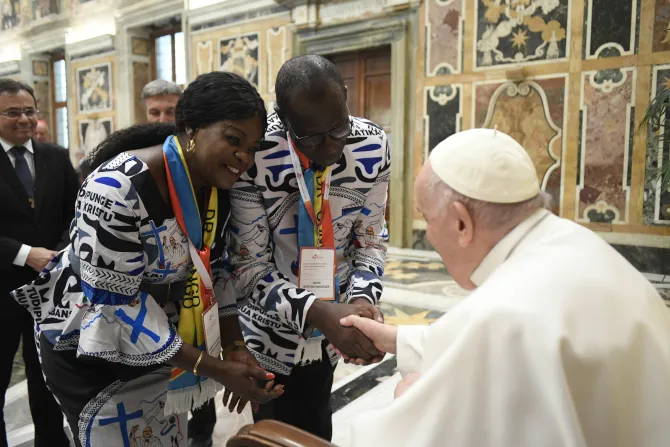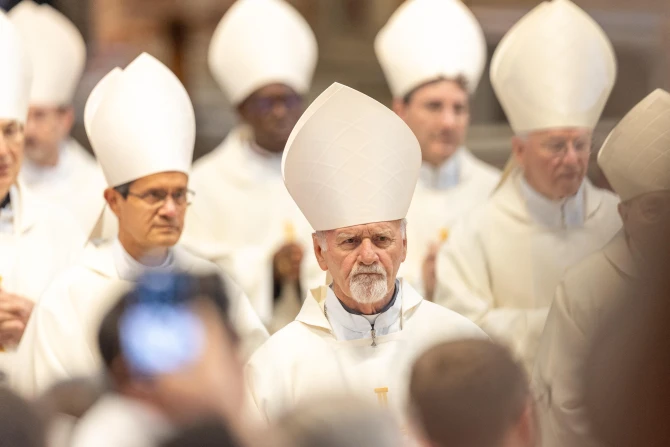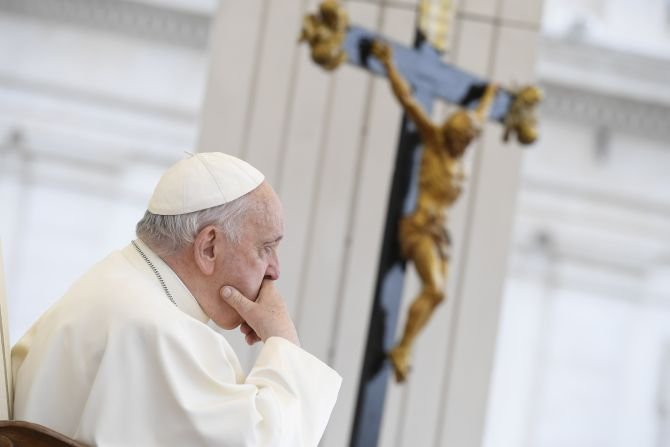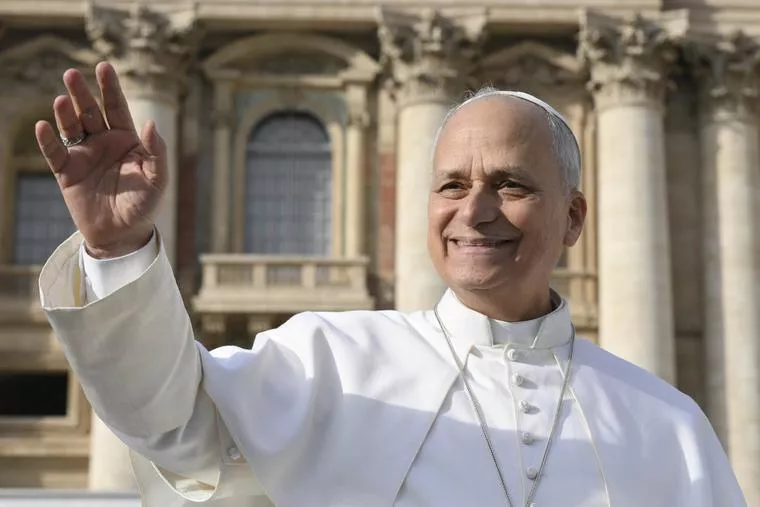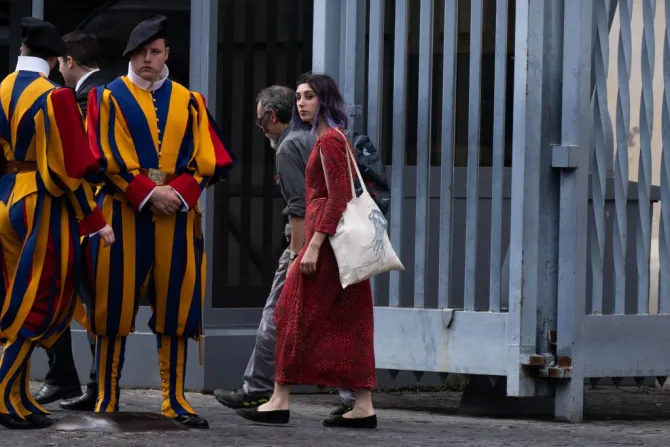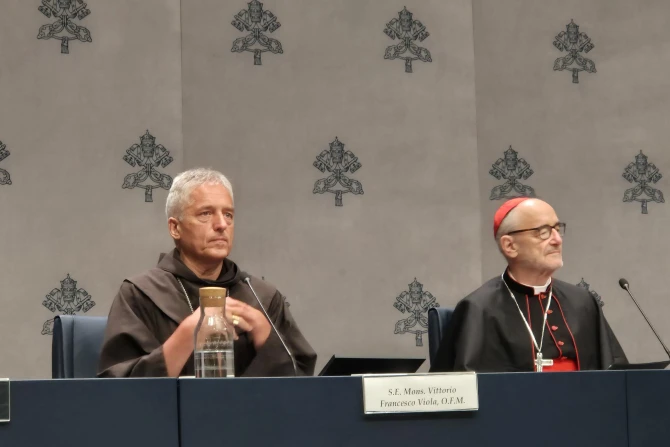Pope Francis discussed his vision for lay ministry in the Church in an April 22 speech, noting that all baptized people are called to take part in the mission of the Church regardless of whether or not they hold a formal lay ministry title such as lector or catechist.
He also emphasized the importance of lay ministers working in service to others rather than as a way to inflate their egos.
“I get angry when I see lay ministers who — pardon the expression — are ‘puffed up’ by this ministry. This is ministerial, but it is not Christian. They are pagan ministers, full of themselves, aren’t they? Beware of this: They must never become self-referential. Service is one-directional, it is not a round trip: That will never do,” the pope said, speaking to the plenary assembly of the Dicastery for the Laity, Family, and Life.
Pope Francis has made changes in recent years to certain lay ministry roles, including a change in Church law in January 2021 making women eligible to be formally instituted to the lay ministries of lector and acolyte. A lector is a person who reads Scripture — other than the Gospel, which is only proclaimed by deacons and priests — to the congregation at Mass, while an acolyte assists deacons and priests in liturgical actions, especially the Mass.
Pope Francis also in May 2021 established the ministry of catechist as an instituted, vocational service within the Catholic Church. The newly instituted ministry is for laypeople who have a particular call to serve the Catholic Church as a teacher of the faith. The ministry lasts for the entirety of life, regardless of whether the person is actively carrying out that activity during every part of his or her life.
The pope noted in his speech that these instituted ministries “do not represent the full extent of the ministeriality of the Church, which is broader and, ever since the first Christian communities, regards all the faithful.” In addition to temporary services to the Church such as the distribution of holy Communion, laypeople can undertake ministries to help the poor and marginalized, he said. In addition, laypeople are called to share the faith within their own families and in their communities. On this point, Pope Francis urged a rereading of St. Paul VI’s apostolic exhortation on evangelization, Evangelii Nuntiandi.
The two attributes that all lay ministries in the Church have in common are “mission” and “service,” the pope said.
“[A]ll ministries are an expression of the sole mission of the Church, and they are all forms of service to others. In particular, I like to emphasize that at the root of the term ministry there is the word ‘minus,’ which means ‘minor.’ And Jesus said so: Those who command should make themselves the smallest, otherwise they do not know how to command. It is a small detail, but of great importance. Those who follow Jesus are not afraid to make themselves ‘inferior,’ ‘minor,’ to place themselves at the service of others,” the pope said.
“Here lies the true motivation that must inspire any of faithful who assume an ecclesial task, any commitment to Christian witness in the reality where he or she lives: the willingness to serve the brethren, and in them, to serve Christ. Only in this way may all the baptized be able to discover the meaning of their own life, joyfully experiencing being ‘a mission on this earth,’ that is, being called, in different ways and forms, to ‘bringing light, blessing, enlivening, raising up, healing, and freeing,’ … and letting themselves be accompanied,” he said.

